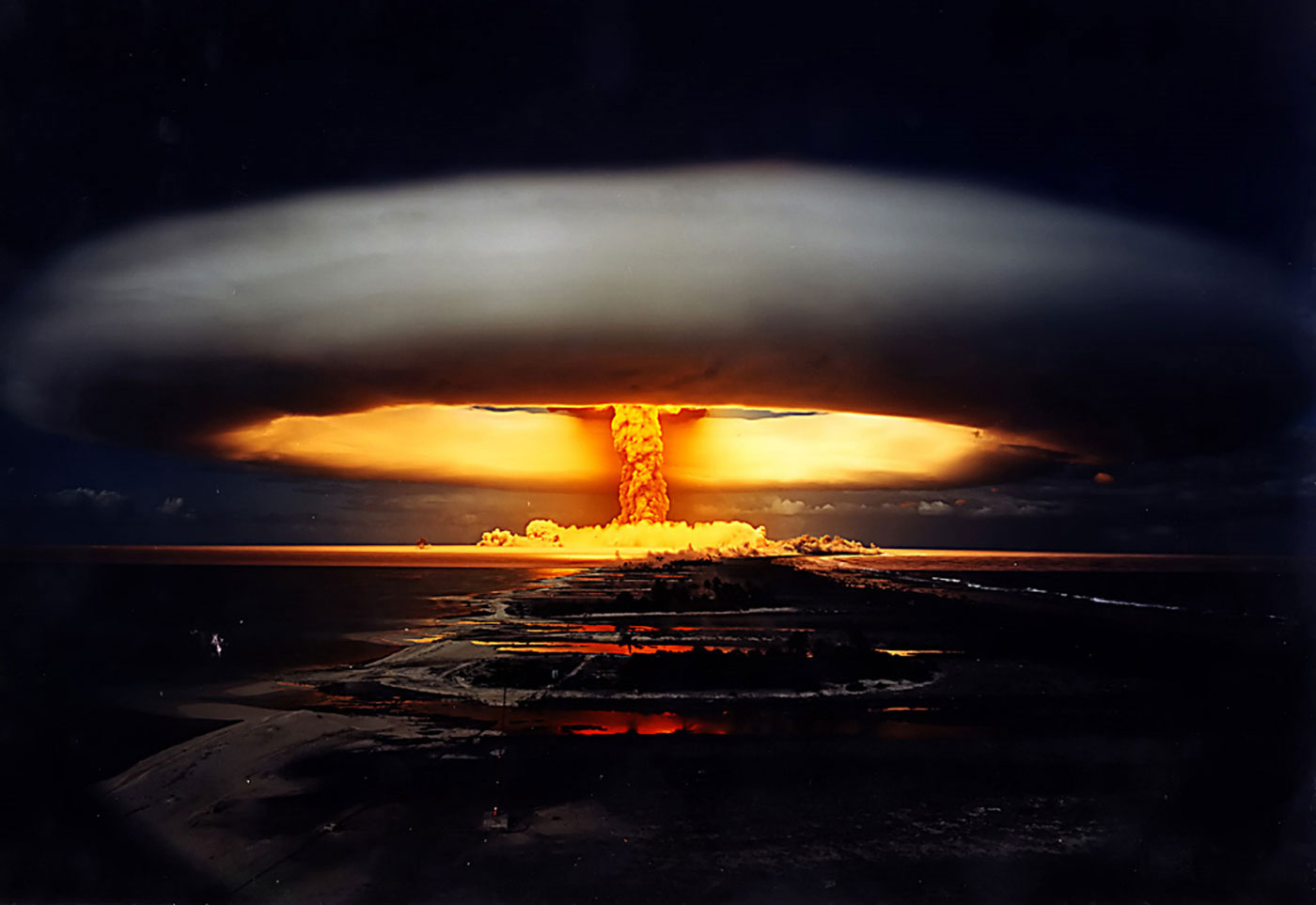WARS AND RUMORS OF WARS
SHOULD JAPAN AND SOUTH KOREA GO NUCLEAR?
Pat Buchanan: Asian nations ought to deal with 'maniacal little country right next door'
By setting off a 100-kiloton bomb, after firing a missile over Japan, Kim Jong-un has gotten the world’s attention.
What else does he want?
Almost surely not war with America.
For no matter what damage Kim could visit on U.S. troops and bases in South Korea, Okinawa and Guam, his country would be destroyed and the regime his grandfather built annihilated.
“The supreme art of war is to subdue the enemy without fighting,” wrote Sun Tzu. Kim likely has something like this in mind.
His nuclear and missile tests have already called the bluff of George W. Bush who, in his “axis of evil” speech, declared that the world’s worst regimes would not be allowed to acquire the world’s worst weapons.
Arguably the world’s worst regime now has the world’s worst weapon, an H-bomb, with ICBMs to follow.
What else does Kim want?
He wants the U.S. to halt joint military maneuvers with the South, recognize his regime, tear up the security pact with Seoul, and get our forces off the peninsula.
No way, says President Trump.
Emerging from church, Trump added, “South Korea’s … talk of appeasement with North Korea will not work, they only understand one thing!”
On Monday, South Korea was accelerating the activation of the high-altitude missile defense implanted by the United States.
Russia and China were talking of moving missile forces into the area.
And Mattis had warned Kim he was toying with the fate of his country:
“Any threat to the United States or its territories, including Guam or our allies, will be met with a massive military response.”
As the United States can only lose from a new Korean war in which thousands of Americans and millions of Koreans could perish, the first imperative is to dispense with the war talk and to prevent the war Mattis rightly says would be “catastrophic.”
China has declared that it will enter a new Korean conflict on the side of the North, but only if the North does not attack first.
For this and other reasons, the U.S. should let the North strike the first blow, unless we have hard evidence Kim is preparing a pre-emptive nuclear strike.
But if and when we manage to tamp down this crisis, we should ask ourselves why we are in this crisis.
Why are we a party to this frozen conflict from 1953 that is 8,000 miles away?
The first Korean War ended months into Ike’s first term. Our security treaty with Seoul was signed in October 1953.
That year, Stalin’s successors had taken over a USSR that was busy testing missiles and hydrogen bombs.
China was ruled by Chairman Mao, who had sent a million “volunteers” to fight in Korea.
Japan, still recovering from World War II, was disarmed and entirely dependent upon the United States for its defense.
What has changed in six and a half decades?
That USSR no longer exists.
It split, three decades ago, into 15 nations.
Japan has risen to boast an economy 100 times as large as North Korea’s.
South Korea is among the most advanced nations in Asia with a population twice that of the North and an economy 40 times as large.
Since the KORUS free trade deal took effect under President Obama, Seoul has been running surging trade surpluses in goods at our expense every year.
The world has changed dramatically since the 1950s.
But U.S. policy failed to change commensurately.
The basic question that needs addressing:
Why do we still keep 28,000 troops in South Korea as a trip wire to bring us into a second Korean war from its first hours, a war that could bring nuclear strikes on our troops, bases and, soon, our nation?
We cannot walk away from our Korean allies in this crisis.
But we should look upon the North’s drive to marry nuclear warheads to ICBMs as a wake-up call to review a policy rooted in Cold War realities that ceased to exist when Ronald Reagan went home.
Consider. North Korea devotes 25 percent of GDP to defense.
South Korea spends 2.6 percent, Japan 1 percent.
Yet these mighty Asian allies, who run annual trade surpluses at our expense, require us to defend them from a maniacal little country right next door.
After this crisis, South Korea and Japan should begin to make the kind of defense effort the U.S. does, and create their own nuclear deterrents.
This might get Beijing’s attention, as our pleas for its assistance with North Korea apparently have not.
Already involved in land disputes with a nuclear-armed Russia and India, China’s dominance of Asia – should Japan and South Korea acquire nuclear weapons – begins to diminish.
“As our case is new,” said Abraham Lincoln, “we must think anew and act anew.”
http://www.wnd.com/2017/09/should-japan-and-south-korea-go-nuclear/

No comments:
Post a Comment